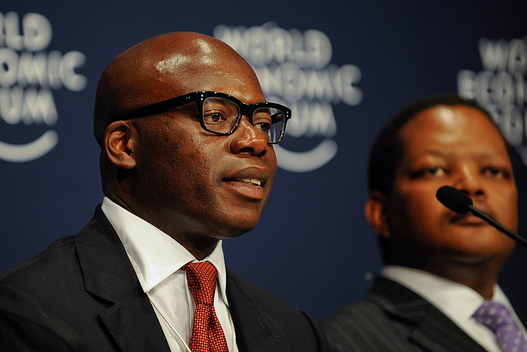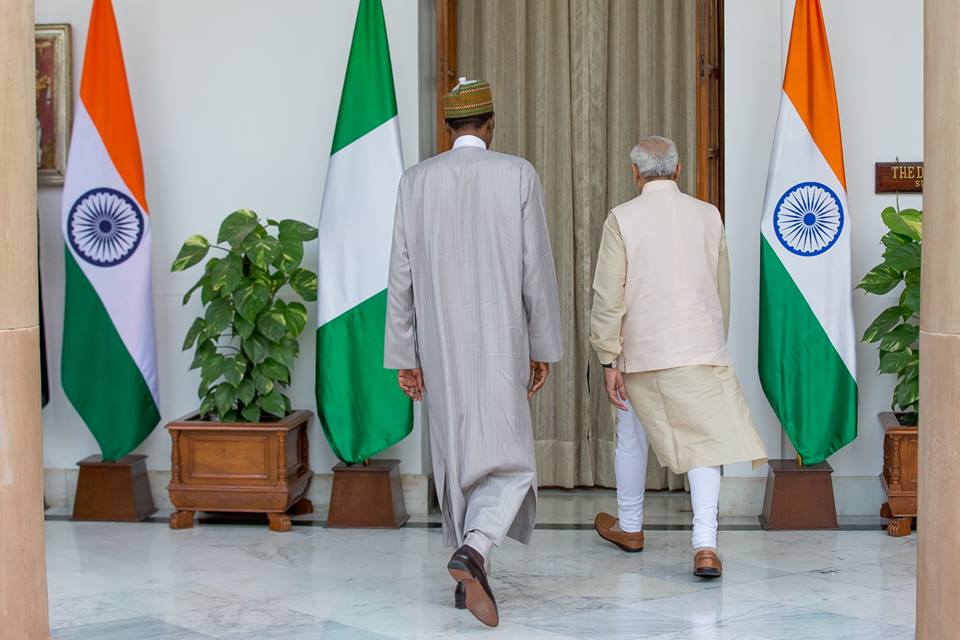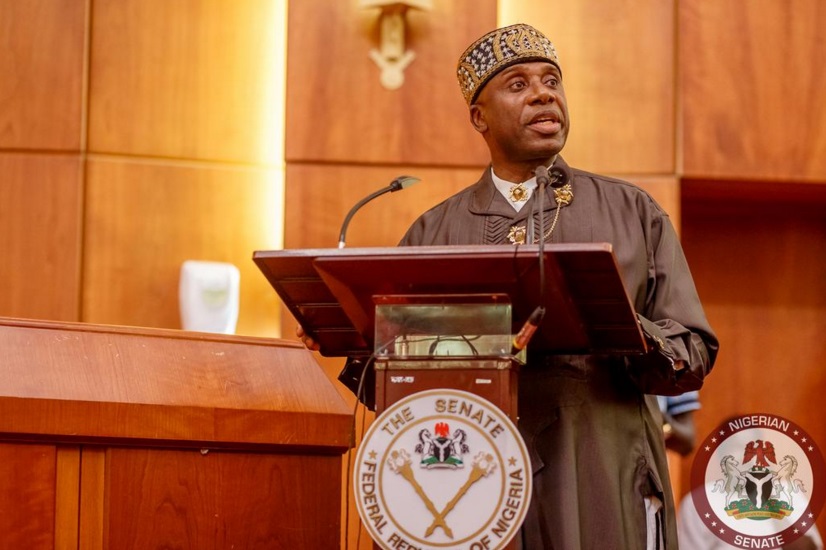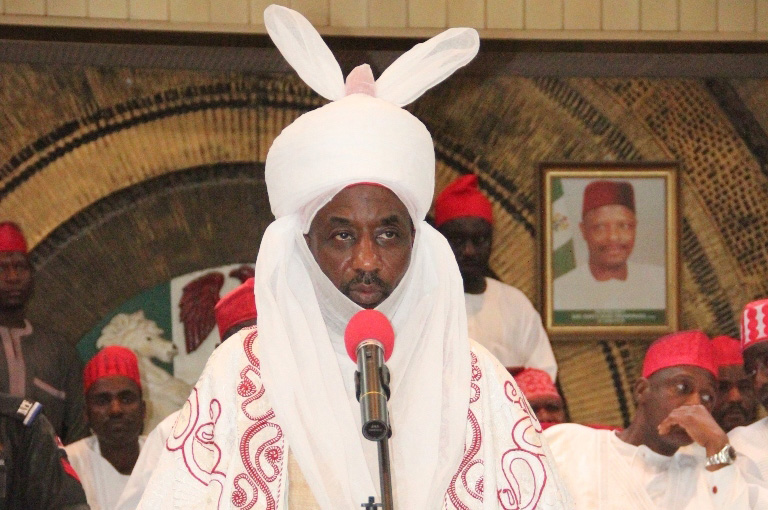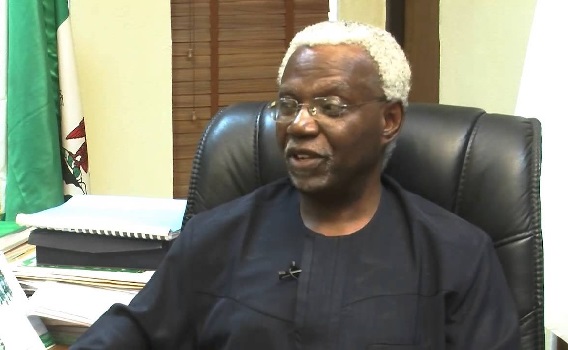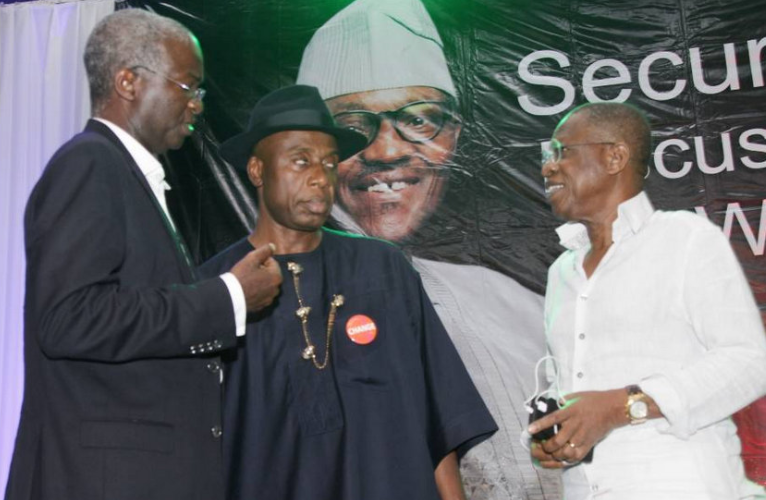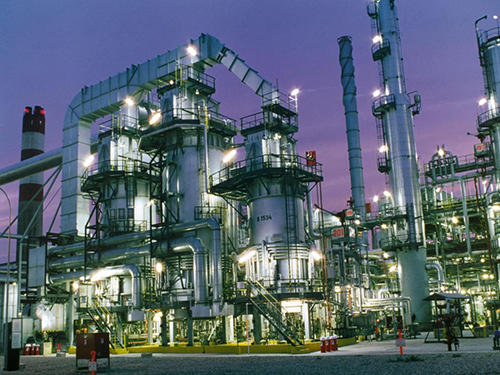There are some figures you hear and your mouth goes asunder. They sound either too good or too bad to be true. I was shocked, for instance, to learn that Floyd Mayweather Jr. pocketed $210m (about N42bn) in his May 2 fight with Manny Pacquiao, who also got $142m (N28bn) for his stress. This is too good to be true. Imagine if Mayweather were a state in Nigeria: the single pay packet would make him the fourth richest by IGR. Only Lagos (N276.1bn), Rivers (N89.1bn) and Delta (N42.8bn) earned more than N40bn in IGR in 2014. Each of the remaining 33 states did not earn in one year what Mayweather took home one night.
What about this: when I heard that Oando Plc recorded a loss of N184bn in 2014, I nearly fell off my seat. It was too bad to be true. That was an average of N3.5 billion per week. What!!! As a young Nigerian who has been enthusiastically campaigning for our indigenous companies to go forth and conquer the world, I was a bit disheartened. That is the biggest loss ever suffered by a company listed on the Nigerian stock exchange — if we discount the calamitous losses of the distressed banks in the wake of the global financial crisis of 2008/2009. By any standards, losing N184bn in a financial year is enormous. That is no chicken feed.
But I hadn’t seen anything yet. I was still trying to understand what was going on when Technology Times, the respected ICT online newspaper, broke the news that the Nigerian Communications Commission (NCC) had fined MTN N1.04tr for failing to deactivate five million unregistered SIM cards. What!!! The whole of N1.04 TRILLION! It was too staggering to be true. If we liquidate MTN, can we raise that much from its assets? Although MTN makes a lot of money from Nigeria, we still have to imagine how many years it would take the company to pay the fine from its profits, in the event that we decide to take it in instalments.
The first thing I would naturally do is give the NCC a pat on the back for having balls. It takes a lot of courage to be able to impose such a monstrous, backbreaking fine on a major market player who employs, directly and indirectly, over 500,000 Nigerians. They are top, top spenders on aviation, entertainment, hospitality, advertising and good causes in the country. They have paid taxes and levies of about N1.3tr to the government since 2001 when they started operations here. For the NCC to be able to wag its finger in their face and tell them to go to hell, that is stern regulation. After all, the US authorities fined BP $18.7bn over the fatal 2010 Gulf of Mexico oil spill. That’s balls.
Advertisement
My slight disagreement with the NCC, however, is that the punishment must fit the crime. N1.04tr for what? The infraction has national security implications but it is not as if MTN used chemical weapon on subscribers. The fine of N200,000 per unregistered line is a bit harsh. It reminds me of when military tribunals were jailing politicians for 400 years. Only Metuselah and his age mates could have served such a sentence. Or when the Patrick Aziza-led military tribunal imposed two death sentences on Major-Gen. Shehu Musa Yar’Adua (rtd) over the 1995 phantom coup. You only die once. Two death sentences are unrealistic, except you are going to raise the dead first.
MTN’s explanations to NCC are that: one, it was impossible to deactivate five million lines within the seven-day deadline given by NCC; two, the only option was to disconnect 18.6 million subscribers, both registered and unregistered, whose records had not been verified by the time NCC issued the deadline; three, disconnecting such a high number at once was going to disrupt the economic lives of subscribers and the country as a whole; four, MTN recommended a staggered process of deactivation so as to minimise the impact on Nigerians; five, it proposed that the NCC should place post-registration expiry dates on all SIMs; and so on and so forth.
I am not disputing MTN’s claims, but I think Nigerians have been complaining for years about weak regulation and this could well be a turning point in the industry. While giving kudos to the NCC, therefore, I would also implore them to be more realistic about the punishment for the crime. If poor service quality to 120 million subscribers attracts a fine of N5m, failure to disconnect five million subscribers should not attract N1.04tr. As the Yoruba would ask: “Ki l’agbe? Ki la ju?” Why kill a cockroach with nuclear bomb? Thankfully, the NCC has made its point and I expect telecoms operators to begin to behave themselves now. I also hope other regulators will take a cue.
Advertisement
In other news, meanwhile, Oando is facing a different kind of challenge. Its N184bn misfortune, or should I say set-back, was caused mainly by market malaise. Wale Tinubu, the energy company’s CEO, while predicting “one more quarter of loss”, said the “impairment” arose from falling crude oil prices, falling naira and rising interest rates. Oando is not alone in suffering the backlash of a troubled global oil market and the resultant economic crisis that hit Nigeria. Indeed, the half-year results of eight oil and gas companies on the NSE showed a drop in profit after tax from N42.79bn to N18.49bn compared to the same period last year. That is serious.
On Thursday, Royal Dutch Shell announced a quarterly loss of $7.4bn — the biggest in its 108-year history. It plans to cut 1,000 more jobs — bringing the total to 7,500 in 2015 — as it prepares for a prolonged recession in the industry. More worrisome is that globally, the biggest players are putting new projects on hold to cut costs and protect valuable capital. Projects worth over $200bn have been shelved. This has repercussions for Nigeria. According to Goldman Sachs, 61 of such new projects are “uneconomic” with oil price at $60. BP, Shell, Chevron and Statoil are all biding their time. Total, ConocoPhillips, Chevron, ExxonMobil and BP are also reporting losses.
I’m not a financial expert and I’m still hoping Maths, like History, would be banned in our schools (just joking), but on going through the figures released by Oando, my conclusion is that the world is not about to come to an end. There is hope. Although Tinubu extolled his company’s “financial integrity” in making its accounts public despite the negative figures, the brighter spark, in my view, is that Oando has made good investments that can turn its fortune around in good time. One of such is the $1.5bn purchase of the assets of ConnocoPhilips in Nigeria’s upstream last year. The new operation has added over $600m a year in cash flow. The debts are thus reducing fast.
At the current rate, Oando could pay off the loan it took for the purchase in half the time it projected — and that is what you get when you buy the right assets, assets that strengthen your position. Its production has increased 11 fold, according to Tinubu, and its 2P (proven and probable) net reserves have gone up by 82%. The company has completed the first segment of its 125-km Greater Lagos Pipeline Ijora-Marina extension, which is another solid economic asset. This year, it signed an agreement to sell a 60% stake in its downstream business to Helios/Vitol JV for a total consideration of $461m. Which means the cup is half-full rather than half-empty, as it were.
Advertisement
All said and done, these are not ideal times for Corporate Nigeria. They could do with a more clement weather. One thing the President Muhammadu Buhari administration has made clear is that it is going to be very tough on regulation — as we can see in the MTN case and the N4.6bn fine on FirstBank and UBA for failing to comply with the TSA directive. It is now time for the government to articulate an economic direction. The inauguration of the cabinet will hopefully sort this out. Uncertainties don’t help business; they impact negatively on the overall health of the economy. We eagerly await a blueprint to breathe life into the economy…
AND FOUR OTHER THINGS…
SANUSI AND DEVALUATION
In 2013, Malam Sanusi Lamido Sanusi, then CBN governor, vowed to defend the naira with the reserves, promising not to allow the currency to weaken. In 2015, as emir of Kano, and now going by the name Muhammadu Sanusi II, he has called for the naira to be devalued and foreign exchange controls removed. What has changed? Nothing much. Just that oil was selling for $100 in 2013 when he made the vow. When you have so much petrodollars at your disposal, you can defend the naira — but not when oil price is $50 and reserves have lost $1bn in two months. Simple.
UNENDING WAR
Advertisement
It is now clear to the Buhari administration that defeating Boko Haram is not as easy as it sounded during the presidential campaign. We can as well argue that the damage was done over the years with the poorly equipped, poorly motivated military. Former President Goodluck Jonathan was caught in the politics of it all, going for broke only on the eve of an election he eventually lost. Five months of Buhari, and the insurgents are still in control of a couple of local governments, in addition to launching bomb attacks on mosques elsewhere. We can’t take anything for granted. Vigilance.
BURATAI STYLE
Advertisement
In the meantime, I believe Buhari made the right call in appointing his service chiefs. There is something clearly different about the current leaders in terms of mentality, professionalism and even physical fitness. The army chief, Tukur Buratai, is always on the field with his soldiers. And you can see him challenging them to press-ups. This was something the generation of pot-bellied service chiefs would dare not try. I grew up respecting soldiers for their personal discipline, but something definitely went wrong along line that physically unfit men with the fattest beer bellies often ended up as service chiefs. Leadership.
AMUNEKE’S AMMO
Advertisement
As the Golden Eaglets face Brazil in the quarter-finals of the U-17 World Cup in Chile tonight, I must confess that I’ve been very impressed with the performance of our boys. Of course, we would always question the ages of our players, but my main interest is the Nigerian talent on display, which is a reminder that our production line is still active and replenishing the stock. The future looks very good — whether or not we retain the cup. Emmanuel Amuneke is yet another graduate of Clemens Westerhof’s Class of ’94 who is not doing badly as a coach. Encouraging.
Advertisement
Add a comment

